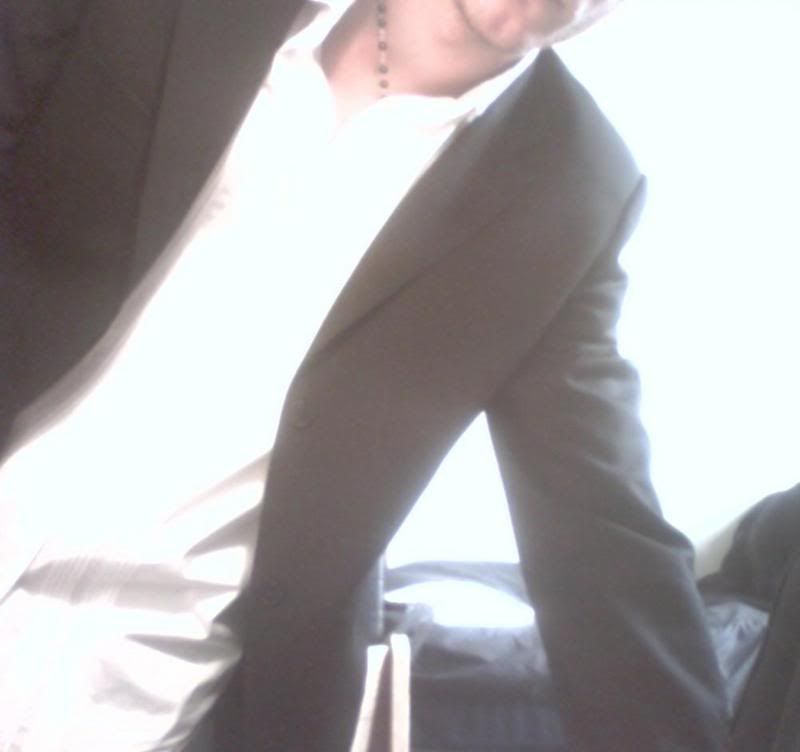Aside from stopping Cher's inexplicable rise to power, there are many things that I'm sure everyone would undo, if given the opportunity. The fact that there are faults that many would want to undo has led many to question the ramifications of undoing them in the first place. If we were to kill Hitler before the Holocaust, would he be viewed as a Martyr with even worse events following due to his death than his life?
If I were to reverse any catastrophe or major event, I would change the events of "operation zapata" or the Bay of Pigs invasion. I think the benefits of removing Castr fourty years ago are still obvious in todays world, where Cuba has been sinking consistently behind the free world, and has not let go of a cold war mentality that they lost decades ago.
I think that the "reversal" of any event in history would be damaging though. The book seems to loop all events, so anything done couldn't be "reversed" in the realm of newtonian science. One would have to venture into a theory of parallel universes, but still one couldn't be certain of the impact of our actions.
When we say "hindsight is always 20/20" we can only be sure that it is in it's definitive sense, but we can't be so sure that something in the past was the right or wrong choice. Aside from being able to see the moral value of any situation, many wrongs have been used to springboard progress, so--to insinuate that we could make better progress by reversing a wrong--is not all together sound reasoning.
Rather than asking "what wrong would I have reversed" what we should ask instead is "how can I make these wrongs into an opportunity or springboard for the future.
Sunday, March 23, 2008
Thursday, March 6, 2008
Sept. 11th : Never Forget
One of the things talked about when we were reading Extremely Loud and Incredibly Close was the fact that many in the Jewish community thought that Jonathan Safran Foer had made the Holocaust an event of nostalgia, after not having experienced it first hand. When I read his first book, I noted the passion that he had written about the Holocaust, and had thought that a non-jewish author would have a difficult time trying to infuse the writing with the same passion and would lose some credibility of being an outsider writing about such an event. The fact that he didn't experience it first hand, and was at least a generation away from the events, hadn't occurred to me in relation to his sincerity of writing about the subject.
When the terrorist attacks on September eleventh happened, I honestly wasn't sure how to react. I didn't know why we were being attacked, who attacked us, I was thousands of miles away, watching it on TV, and--while I knew it affected me--I wasn't there to feel it directly. I remember one of the most poignant images I saw being that of the man falling from the building.
While I don't accuse Foer of attempting to use tragedy for literary or economic gain, after the class discussion I'm a bit less able to accept his writing as entirely sincere. I noted the fact that the two novels were almost identicle in it's use of tragedy and time shifts, and felt that the power of tragedy was being used more as a common demonitator, imposed upon a common formula to make a story. The story was still well written and moving, but I felt that being moved was more intention of writing than honestly intended emotional empathy.
When the terrorist attacks on September eleventh happened, I honestly wasn't sure how to react. I didn't know why we were being attacked, who attacked us, I was thousands of miles away, watching it on TV, and--while I knew it affected me--I wasn't there to feel it directly. I remember one of the most poignant images I saw being that of the man falling from the building.
While I don't accuse Foer of attempting to use tragedy for literary or economic gain, after the class discussion I'm a bit less able to accept his writing as entirely sincere. I noted the fact that the two novels were almost identicle in it's use of tragedy and time shifts, and felt that the power of tragedy was being used more as a common demonitator, imposed upon a common formula to make a story. The story was still well written and moving, but I felt that being moved was more intention of writing than honestly intended emotional empathy.
Subscribe to:
Comments (Atom)
